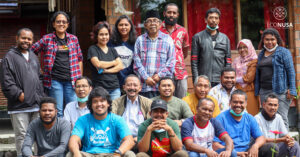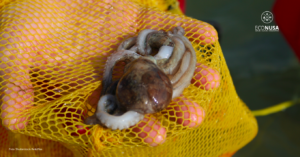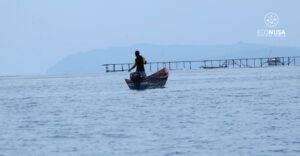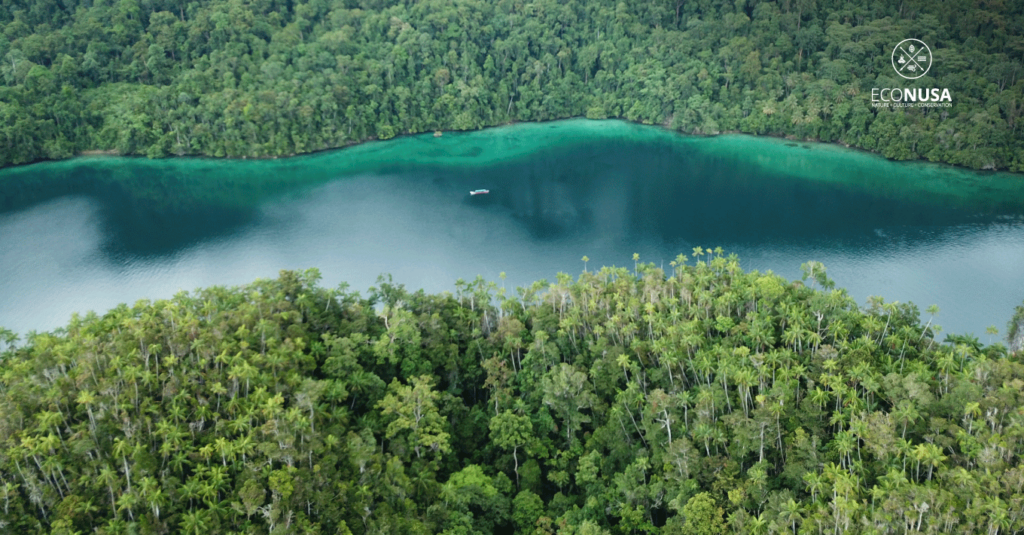
Sustainable development in Tanah Papua has become a joint commitment of all parties, including central government, regional government, green organizations, and local indigenous peoples. According to West Papua Governor Dominggus Mandacan, the collaboration is important. One of the purposes is to perform the Declaration of Manokwari which visions peaceful, sustainable, and dignified Tanah Papua.
“To meet the commitment of the Manokwari Declaration, we need major collaboration with various stakeholders,” he said in his written statement read by West Papua Secretariat’s General Administration Assistant, Raymond R. Yap, on the opening of Virtual Coordination Meeting of Papua and West Papua Provinces with Development Partners, Tuesday, 7 September 2021.
Read Also: Securing Development, Preventing Ecology Disaster
The two day virtual meeting here was intended to make coordination, identify and respond to new progress to achieve the Declaration of Manokwari agreed in October 2018. Coordination is required for important issues discussion including challenge and opportunity concerning the attainment of sustainable development in Tanah Papua.
Since 2018, EcoNusa Foundation was requested to act as an accelerator to build coordination among local government and development partners in Tanah Papua comprising many civil society organizations working in Tanah Papua. More or less 100 participants from ministry, institution, local government, and NGOs working in Tanah Papua attended the coordination meeting from 7-8 September 2021.
National Development Planning Agency/Ministry’s Papua Desk Chief, Oktoraldi, said there are various potentials of collaboration with development partners. For instance, it deals with conservation, disaster resilience, water ecotourism protection. “In the context of planning, for instance training and assistance of health workers and teachers, human resources capacity building, low carbon development planning, and spatial planning,” he said.
Palm Oil Moratorium
In his speech, Dominggus stated that West Papua had made some efforts to implement the Declaration of Manokwari. One of them is the commitment to prioritize sustainable development and accommodate 70 percent of the mainland as the protected areas.
West Papua government has evaluated the concessions of palm oil plantations along with the stipulations of Presidential Instruction on Palm Oil Moratorium and the Corruption Eradication Commission (KPK)’s National Movement to Save Natural Resources (GNP-SDA). As from around 650,000 hectares of lands with concessions to 24 companies, there are only 70,000 hectares of planted land and only 17,000 hectares paid tax.
Read Also: Evaluating Palm Oil License in West Papua
Provincial government called the regents to revoke the license. There are 350,000 hectares of concessions that had been revoked. “The result is a contribution to the process of attaining our 17 percent commitment. And, we hand back to the indigenous people to manage which goes along with the mapping process of customary land which is ongoing,” said Dominggus.
License evaluation is also performed in Papua Province. Papua’s Assistant for Economy and People’s Welfare, Muhammad Musa’ad, said from the evaluation there are many overlapping licenses. There have been companies with Forest Concession Rights (HPH) for years but they have never run their operations. “We have already inventoried those potentially to be revoked. This is our joint commitment to secure Papua as the lungs of the world,” he said.
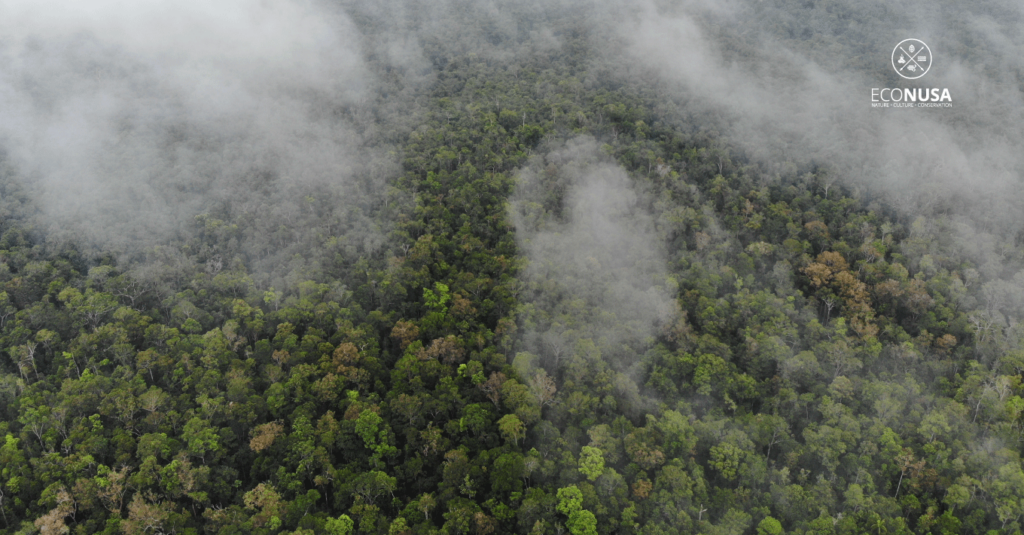
Musa’ad added that Papua Province Government also commits to develop green growth along with the low carbon development strategy which is designed by the National Development Planning Agency. This commitment is to counter deforestation given the fact that 79 percent of Papua revenue comes from utilization of natural resources of which 30 percent comes from mining. Service and others only give 15 percent contribution of the revenue. “As it comes from natural extraction, deforestation risk is unavoidable,” he said.
Read Also: Heading for Green Economy, Nurturing Hope for Natural Resources Management
KPK’s Chairman for Coordination and Supervision of Prevention Task Force, Dian Patria, said there are many problems arising from the overlapping licenses, such as degraded environment, conflict between community and company.
For the reason, KPK urged the improvement of licensing governance. Businesspeople should acquire their licenses to Plantation Licensing Information System (Siperibun) application. The betterment will optimize the state revenue and minimize tax payment leak. “We calculate the potential national loss is up to Rp 20 trillion,” Dian said.
Indigenous Community Authority
According to Musa’ad, one of the obstacles for the local government is authority issues. To date, all authorities of licensing for both mining and forest concession are shifted to the central government. “There is no more local authority,” he said.
Therefore, the local government attempts that the Government Regulation Draft (RPP) accommodates an assignment of authority to Papuan community. The RPP is deemed technical rules of the Law No. 2/2021 on the Papua Special Autonomy. Authority transfer here will provide recognition and protection to the indigenous communities rights for having inhabited and safeguarded forests. “Land in Papua and West Papua has owners. The state should give it recognition,” added Musa’ad.
Concerning the management of the former palm oil concession after revocation, Dian Patria underlined the management of the indigenous community. As to him, there is a need to have social economic assessment on those plots of land. For instance on the management of natural resources by indigenous communities and assistance for management schemes. “This is big homework of which the bureaucrats could hardly work alone, but need support from partners,” Dian stressed out.
Editor: Leo Wahyudi


